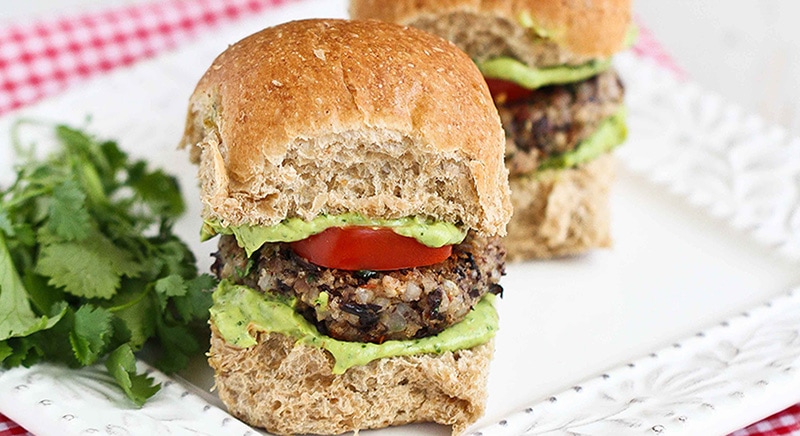Avocados, with their creamy texture and rich nutritional profile, have emerged as a superfood for individuals managing diabetes. Their unique composition of fiber, healthy fats, and vitamins offers a range of benefits that support blood sugar regulation and overall well-being.
This comprehensive guide explores the nutritional value of avocados for diabetes, provides practical tips for incorporating them into a diabetes-friendly diet, and presents a collection of delicious and nutritious avocado recipes tailored to meet the specific needs of individuals with diabetes.
Delving into the nutritional composition of avocados, we discover a treasure trove of essential nutrients. Fiber, a crucial component for diabetes management, plays a pivotal role in slowing down the absorption of sugar into the bloodstream, thereby preventing spikes in blood glucose levels.
Additionally, avocados’ abundance of healthy fats, primarily monounsaturated and polyunsaturated fats, contributes to satiety, reduces insulin resistance, and supports cardiovascular health.
Nutritional Value of Avocados for Diabetes
Avocados, with their distinctive emerald-green flesh and buttery texture, are not only culinary delights but also nutritional powerhouses. They offer an impressive array of nutrients that play a crucial role in diabetes management.
Let’s delve into the nutritional composition of avocados and explore how their unique profile benefits individuals with diabetes:
Fiber Content
Avocados are exceptionally rich in fiber, a nutrient that is essential for blood sugar regulation. Soluble fiber, the predominant type found in avocados, forms a gel-like substance in the digestive tract, slowing down the absorption of glucose into the bloodstream.
This helps prevent blood sugar spikes and promotes stable glucose levels.
Healthy Fats
Contrary to popular belief, avocados are a heart-healthy fruit due to their high content of monounsaturated and polyunsaturated fats. These healthy fats support satiety, reduce insulin resistance, and improve cholesterol levels, all of which are crucial for diabetes management.
Vitamin Content
Avocados are a rich source of vitamins, including vitamin C, potassium, and folate. Vitamin C is an antioxidant that protects cells from damage, while potassium helps regulate blood pressure and folate is essential for red blood cell production.
Nutritional Composition of Avocados
| Nutrient | Amount per 100g |
|---|---|
| Calories | 160 |
| Fat | 15g |
| Carbohydrates | 9g |
| Protein | 2g |
| Fiber | 7g |
| Vitamin C | 10mg |
| Potassium | 485mg |
| Folate | 81mcg |
Incorporating Avocados into a Diabetes-Friendly Diet
Avocados are a versatile and nutritious fruit that can be easily incorporated into a diabetes-friendly diet. Their low glycemic index and high fiber content make them a good choice for individuals with diabetes who need to manage their blood sugar levels.
There are many ways to enjoy avocados, including adding them to salads, sandwiches, wraps, and smoothies. Avocados can also be used as a substitute for high-carb foods like bread or rice.
Avocado-Based Recipes for Diabetes
Here are some examples of avocado-based recipes that are suitable for breakfast, lunch, dinner, and snacks:
| Meal | Recipe |
|---|---|
| Breakfast | Avocado toast with egg and smoked salmon |
| Lunch | Grilled chicken salad with avocado, tomatoes, and cucumber |
| Dinner | Grilled salmon with roasted vegetables and avocado salsa |
| Snacks | Avocado slices with hummus or guacamole |
Benefits of Using Avocados as a Substitute for High-Carb Foods
Using avocados as a substitute for high-carb foods like bread or rice can have several benefits for individuals with diabetes:
- Lower blood sugar levels: Avocados have a low glycemic index, which means they release sugar slowly into the bloodstream. This can help to prevent spikes in blood sugar levels.
- Increase fiber intake: Avocados are a good source of fiber, which can help to slow down digestion and absorption of sugar. This can also help to keep blood sugar levels stable.
- Reduce cravings: Avocados are a satisfying food that can help to reduce cravings for sugary snacks. This can help to prevent overeating and weight gain.
Avocado Recipes for Diabetes Management

Avocados offer a unique blend of nutrients that can support blood sugar management and overall well-being in individuals with diabetes. Incorporating avocados into a diabetes-friendly diet can provide essential vitamins, minerals, and fiber, while promoting satiety and reducing cravings.
This section presents a collection of delicious and nutritious avocado recipes tailored for individuals with diabetes, showcasing the versatility and health benefits of this superfood.
Avocado Smoothie for Diabetes Management
This smoothie is a power-packed breakfast or snack option that combines the creamy texture of avocados with antioxidant-rich berries, fiber-filled spinach, and omega-3 fatty acid-rich chia seeds.
- Blend 1/2 avocado with 1/2 cup frozen berries, 1 cup spinach, 1/4 cup unsweetened almond milk, 1 tablespoon chia seeds, and a dash of cinnamon.
- Add a splash of water if needed for a desired consistency.
Avocado and Salmon Salad with Low-Carb Dressing
This salad combines the richness of avocados with the heart-healthy benefits of salmon, creating a satisfying and nutritious meal.
- In a large bowl, combine 1 cup diced avocado, 1 cup flaked salmon, 1/2 cup diced cucumber, 1/4 cup chopped red onion, and 1/4 cup chopped cilantro.
- For the dressing, whisk together 1/4 cup olive oil, 2 tablespoons lemon juice, 1 teaspoon Dijon mustard, salt, and pepper to taste.
- Drizzle the dressing over the salad and toss to combine.
Avocado-Based Dips and Spreads
Avocado-based dips and spreads provide a flavorful and nutritious addition to snacks, appetizers, or sandwiches.
| Dip/Spread | Nutritional Value | Serving Suggestions |
|---|---|---|
| Guacamole | Rich in healthy fats, fiber, and potassium | Chips, tacos, burritos |
| Avocado Hummus | High in protein, fiber, and antioxidants | Vegetables, pita bread, sandwiches |
| Avocado Ranch Dip | Creamy and flavorful, lower in calories than traditional ranch | Vegetables, crackers, chips |
| Avocado Pesto | Packed with vitamins, minerals, and antioxidants | Pasta, salads, sandwiches |
Cooking Techniques for Avocado Dishes
Avocados can be cooked in a variety of ways, each of which affects their nutritional content and flavor. Here are some common cooking techniques for avocados:
Grilling
Grilling avocados gives them a smoky flavor and a slightly charred exterior. This method is best for firm avocados, as they will hold their shape better on the grill. To grill avocados, cut them in half, remove the pit, and brush them with olive oil.
Grill them over medium heat for 5-7 minutes per side, or until they are slightly charred and tender.
Baking
Baking avocados is a gentle cooking method that preserves their creamy texture. This method is best for ripe avocados, as they will become even creamier when baked. To bake avocados, cut them in half, remove the pit, and drizzle them with olive oil.
Bake them at 350 degrees Fahrenheit for 15-20 minutes, or until they are tender.
Sautéing
Sautéing avocados is a quick and easy way to cook them. This method is best for firm avocados, as they will not become mushy when sautéed. To sauté avocados, cut them into cubes or slices and heat them in a skillet over medium heat.
Cook them for 5-7 minutes, or until they are tender.
| Cooking Technique | Advantages | Disadvantages |
|---|---|---|
| Grilling |
|
|
| Baking |
|
|
| Sautéing |
|
|
Health Benefits of Avocados Beyond Diabetes Management
Avocados offer numerous health benefits beyond their role in diabetes management. Their rich nutritional profile contributes to overall well-being, including heart health, weight management, and antioxidant protection.
Heart Health
Avocados are an excellent source of monounsaturated fats, which have been shown to lower LDL (bad) cholesterol levels and raise HDL (good) cholesterol levels. This favorable lipid profile reduces the risk of heart disease and stroke. Studies have demonstrated that consuming avocados regularly can improve blood lipid levels and reduce the incidence of cardiovascular events.
Weight Management
Avocados are high in fiber, which promotes satiety and reduces hunger cravings. Their high fat content also slows down digestion, leading to a feeling of fullness that lasts longer. Additionally, avocados are a good source of protein, which further contributes to satiety.
Antioxidant Protection
Avocados are rich in antioxidants, such as vitamin C, vitamin E, and carotenoids. These antioxidants help protect the body from damage caused by free radicals, which are unstable molecules that can contribute to chronic diseases such as cancer and heart disease.
Studies have shown that avocados have a high antioxidant capacity compared to other fruits and vegetables.
| Nutrient | Avocado | Banana | Apple | Broccoli |
|---|---|---|---|---|
| Calories | 240 | 105 | 95 | 34 |
| Fat | 21g | 0.4g | 0.3g | 0.4g |
| Carbohydrates | 17g | 27g | 25g | 6g |
| Protein | 4g | 1g | 0.5g | 3g |
| Fiber | 13g | 3g | 4g | 2g |
| Vitamin C | 12mg | 10mg | 14mg | 89mg |
| Vitamin E | 2.1mg | 0.1mg | 0.1mg | 1.5mg |
Final Thoughts

In conclusion, avocados offer a multifaceted approach to diabetes management, providing both nutritional benefits and culinary versatility. By incorporating avocados into their diets, individuals with diabetes can enjoy a range of delectable dishes while supporting their overall health and well-being.
The recipes presented in this guide serve as a valuable resource, empowering individuals to make informed choices and navigate the complexities of diabetes management with confidence and a touch of culinary flair.
FAQ
Can avocados raise blood sugar levels?
Avocados have a low glycemic index and are unlikely to cause significant spikes in blood sugar levels when consumed in moderation as part of a balanced meal.
How much avocado is safe for diabetics?
The recommended serving size for avocados for individuals with diabetes is typically 1/2 to 1 avocado per day.
Are there any precautions to consider when eating avocados with diabetes?
Individuals with diabetes should monitor their blood sugar levels closely when consuming avocados, as the fiber content can slow down the absorption of other foods and medications.
